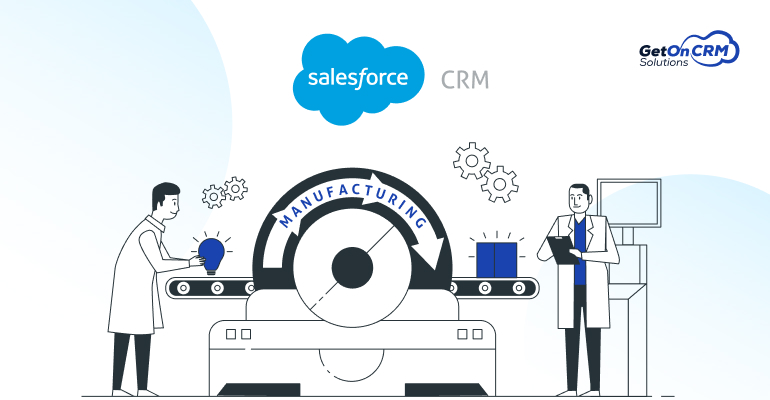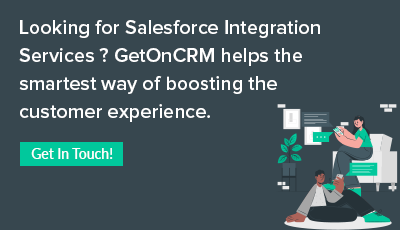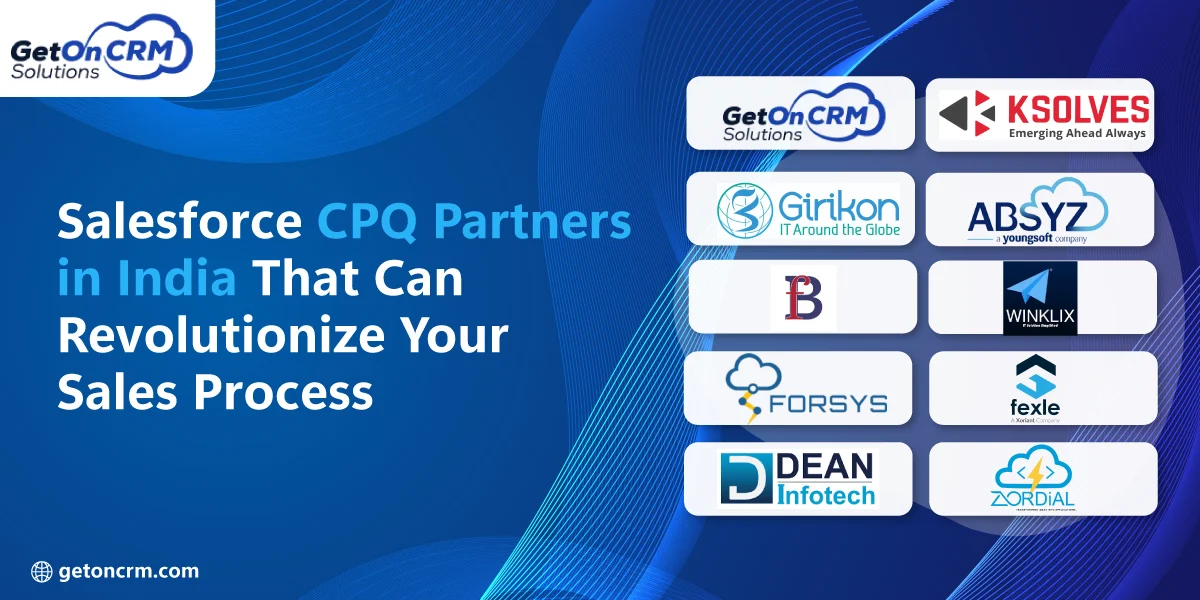The manufacturing sector is about to be disrupted by digital technology. Businesses must adapt to this to remain competitive or survive in the market. Businesses are attempting to take advantage of recent customer acquisition and retention developments. A product manufacturer or dealer/distributor requires something other than big-box solutions that cater to every industry sector.
Sales are only one aspect of Salesforce for Manufacturing, but Today, manufacturers use Salesforce’s power to accomplish more, run their businesses more effectively, and increase employee productivity. The warehouse management, customer service, sales pipeline, product quality, and return on investment benefit from salesforce CRM for Manufacturing’s assistance. Let us now know why Salesforce is the best CRM for manufacturers.
Why Is Salesforce The Best CRM For Manufacturers?
1. Better Sales Performance And Lead Conversion
A good CRM software like Salesforce helps the manufacturing industry find good leads, so they save time on good leads. Thanks to the Sales Cloud, the sales team can now manage all accounts, leads, opportunities, and communications in a single system, eliminating the possibility of missed deals or opportunities.
Analytics can be used by the sales team to automate marketing activities and generate opportunities for upsells and cross-sells through the marketing cloud and Salesforce Pardot. Additionally, the CPQ (configure-price-quote) feature can assist with quotation management and creating customized product catalogues.
2. Indirect Channel Management
Manufacturing companies primarily rely on distribution partners to get their products to market through indirect channel management. When it comes to managing logistics and marketing requirements, partners play a crucial role. As a result, manufacturers must carefully manage their relationships with all partners to ensure everyone is on the same page.
Salesforce CRM for manufacturer help companies and their channel partners communicate more effectively. Manufacturers can work together, communicate, educate, support, and reward their partners through the platform. To sell more quickly, manufacturers can simplify and speed up the partner onboarding process with Salesforce. Additionally, it enables manufacturing companies to provide partners with support and direction for improved performance.
Also Read: Salesforce For Manufacturing Industry: The Recent Need Of Every Business
3. Better Forecasting
Salesforce CRM can produce a dependable sales forecast by completely tracking customer orders. With the help of Einstein’s analytics capability, companies can identify peak order periods, precise sales estimates, and long-term patterns for future planning. Companies can deliver orders at the right time, quantity, and location with improved production planning aided by this information. It’s essential if you want to stay ahead of the competition.
4. CRM Integration With ERP
Great products are not enough; customers must be heard, and enjoyable experiences must be created. Businesses can provide exceptional customer experiences thanks to industrial technologies like the Internet of Things and Artificial Intelligence. Salesforce makes it easier for businesses of all sizes to focus on their customers.
From sales to marketing to customer service, Salesforce puts customers first. Salesforce enables manufacturers to pay close attention to their customers, create personalized one-on-one experiences, and make recommendations based on customers’ journeys. Manufacturers are beginning to use this individualized and pertinent engagement as a significant point of differentiation.
5. Powerful Integrations
Manufacturing companies rely on a variety of applications for a variety of purposes. This makes the information get dispersed into different frameworks. Integrating CRM allows you to create a scalable, cost-effective powerhouse that makes the most of your software investments.
Robust manufacturing CRM solutions can integrate with almost anything, including ERP, marketing automation, field service applications, phone systems, social media, and even older databases, which are essential for manufacturing businesses. With Salesforce’s acquisition of MuleSoft in 2018, manufacturers now have extensive capabilities for connecting to cloud-based or on-premises enterprise applications. The power of APIs makes connecting to leading CRM, ERP, and legacy systems simple. To provide a connected experience, manufacturers can integrate Salesforce with Market, financial operations, SAP ERP, ServiceNow, and other applications.
6. Enhance Field Service
Operations Field service management is a difficult problem for manufacturing companies because it requires coordination on multiple levels. Manufacturers require efficient strategies to maintain profitability, balance the workforce, and meet customer expectations in the digital age.
With improved field technician productivity and optimized job scheduling, Salesforce for Manufacturing quickly resolves product issues. Manufacturers can use triggered alerts based on device data to provide proactive support. The field service representatives have instant access to real-time product information like price, warranty, and more with a single click.
7. Complete Data Visibility
A manufacturing company generates a lot of data, including information about sales, inventory management, and relationships with partners and customers. The issue is that these businesses use multiple applications for each process, resulting in data that is still decentralized and challenging to use. Salesforce’s ability to contextualize customer data is a game-changer for manufacturing companies.
It makes it possible for manufacturers to sort through the noise and find the information they need to run their businesses. Salesforce makes it easier to forecast sales demand using actual numbers rather than intuition. Manufacturers can order the appropriate quantity of raw materials in this manner, which will reduce backorders and waste.
Also Read: Salesforce Implementation In Manufacturing Industry – Top 3 Solutions
8. Flexibility
Flexibility is additional crucial Salesforce CRM solutions for manufacturing features that manufacturers require. The more adaptable a CRM solution is, the better a company can create exceptional customer, partner, and dealer experiences. Salesforce CRM is compatible with your existing architecture and provides a comprehensive set of options to meet your company’s future requirements.
Salesforce streamlines even the most complex manufacturing business processes, whereas other CRM solutions are less adaptable. The adaptability of Salesforce can be used to improve your current operations, strengthen your relationships with customers, consolidate and simplify back-end processes, collaborate with field sales and channel representatives, and do much more.
Conclusion
Salesforce is, without a doubt, the best manufacturing industry CRM software. The manufacturing sector stands to benefit greatly from selecting Salesforce CRM. For businesses of all sizes, Salesforce offers a comprehensive set of features. Salesforce CRM consulting partner help businesses engage with customers, manage and increase sales, resolve customer service issues, and seamlessly collaborate across departments to provide exceptional customer service and boost productivity. Salesforce’s various cloud platforms, which are interconnected and offer excellent options to boost the company’s overall return on investment, provide these advantages.
GetOnCRM Solutions is a Salesforce silver consulting partner that can help Salesforce CRM integration for manufacturing companies for various operations and automated functions.
Frequently Answered Questions for Salesforce for Manufacturing Companies
Why is Salesforce effective for manufacturing companies?
It streamlines order management, customer tracking, and partner collaboration. Manufacturers can manage supply chains, distributors, and after-sales service from a single platform
How does Salesforce improve supply chain visibility?
By integrating data from suppliers, logistics, and production, Salesforce provides real-time visibility. Manufacturers can predict delays, track orders, and plan production more efficiently.
Can Salesforce support dealer and distributor networks?
Yes, it allows manufacturers to set up portals where dealers and distributors can access orders, inventory, and support. This strengthens partner relationships and boosts channel sales.
Does Salesforce help with customer service in manufacturing?
Absolutely. Service Cloud enables manufacturers to handle warranties, repairs, and customer requests faster. This improves satisfaction and brand loyalty.
How does Salesforce assist in sales forecasting?
Salesforce provides predictive analytics and AI-driven insights. Manufacturers gain better visibility into demand trends, helping them adjust production and inventory to meet customer needs.





















